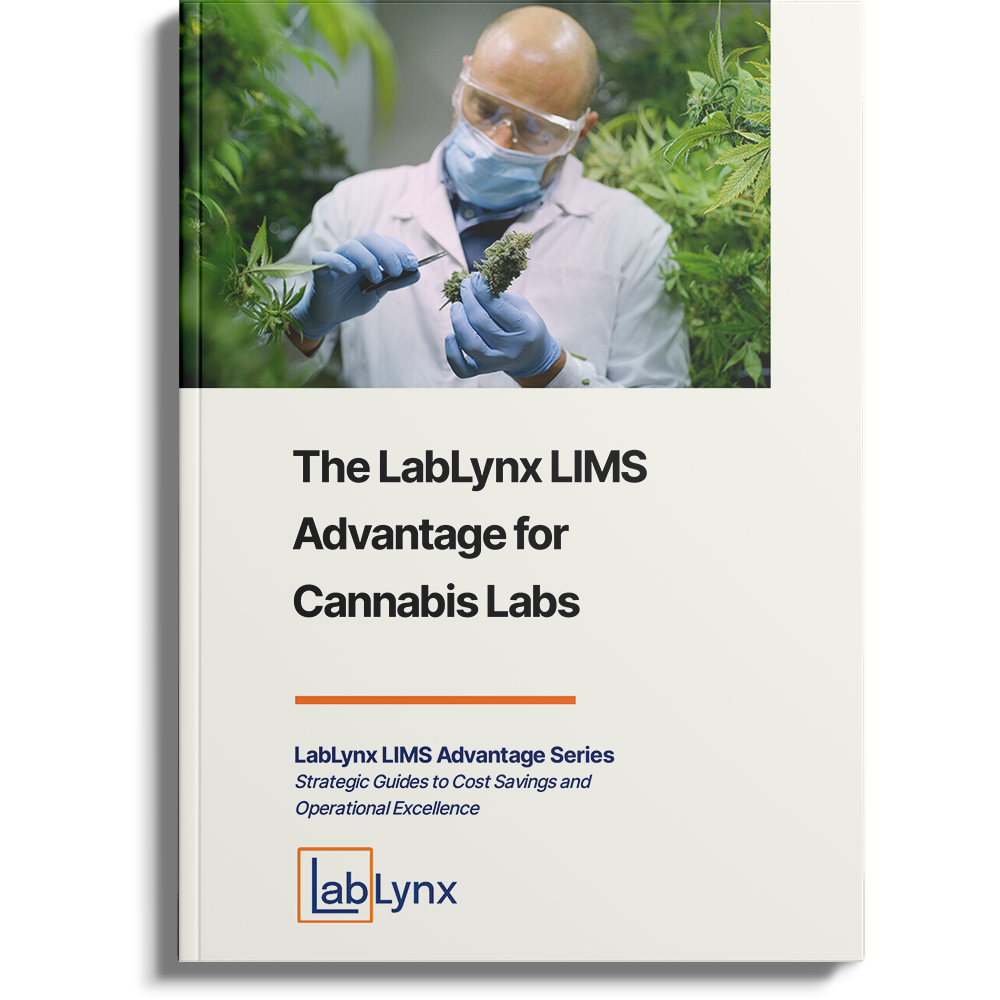
This content has been archived. It may no longer be relevant
 Nothing was normal in 2021. COVID-19 caused a complete redesign of how consumers and cannabis businesses interact. Reminiscent of inflation in the 1980s, inflation and COVID-19 have caused significant changes in consumer spending and behavior. According to a report published by Akerna and MJ Platform, cannabis purchases increased 25-30 percent from 2020-2021 due to Americans quarantining and reducing their spending on other goods and services like bars and dining out. States with adult-use and medical cannabis programs, like Colorado, saw record breaking cannabis purchases in 2021 resulting in approximately $423,486,053 in tax revenue. Unlike the federal government, states must find a way to balance their state budgets or draw on existing reserves. The cannabis industry was one of the few sectors to continue growing during COVID-19 and provide substantial tax revenues to state governments. Meaning, even in recessions, the cannabis industry continues to grow and demand for reliable testing will remain consistent if not increased. Especially in newer markets, the need to establish reliable points of contact throughout the supply chain is paramount to sustain any business. Below is a list of states with hopes for either medical or adult-use legalization in 2022.
Nothing was normal in 2021. COVID-19 caused a complete redesign of how consumers and cannabis businesses interact. Reminiscent of inflation in the 1980s, inflation and COVID-19 have caused significant changes in consumer spending and behavior. According to a report published by Akerna and MJ Platform, cannabis purchases increased 25-30 percent from 2020-2021 due to Americans quarantining and reducing their spending on other goods and services like bars and dining out. States with adult-use and medical cannabis programs, like Colorado, saw record breaking cannabis purchases in 2021 resulting in approximately $423,486,053 in tax revenue. Unlike the federal government, states must find a way to balance their state budgets or draw on existing reserves. The cannabis industry was one of the few sectors to continue growing during COVID-19 and provide substantial tax revenues to state governments. Meaning, even in recessions, the cannabis industry continues to grow and demand for reliable testing will remain consistent if not increased. Especially in newer markets, the need to establish reliable points of contact throughout the supply chain is paramount to sustain any business. Below is a list of states with hopes for either medical or adult-use legalization in 2022.
Ohio
Ohio is the most speculative state on this list, but that doesn’t mean legalization isn’t possible! Ohio legalized medical marijuana in 2016, and it is implementing its medical marijuana program. Grassroot advocacy groups are now hoping a ballot initiative will be approved for November 2022, giving Ohio citizens a chance to vote for or against adult-use legalization. There are also Democrat and Republican bills for adult-use legalization being discussed at the statehouse. The Republican bill is significantly more restrictive than the ballot initiative and may pass before the ballot initiative has a chance in November. Unlike the majority of states with cannabis programs, Ohio does not have a centralized cannabis regulatory agency. This ballot initiative would also establish such agency. One important caveat to the ballot initiative is its indirect. An initiative is any proposal for a new law or state constitutional amendment created by the citizens of a state. Direct initiatives maintain the language originally proposed while indirect initiatives are first modified by the state legislature before being placed on the ballot.
Currently, the Ohio initiative has been certified by the Ohio Attorney General, but it still must pass through the Ohio statehouse where it will likely have several drastic changes. The initiative as it reads now does not limit the amount of licenses for adult-use, different than the Republican proposed limitation based on local population size. Under the initiative, current medical license holders would receive adult-use licenses for their locations, and in some cases could also receive additional license types such as a Level I Cultivator who would receive an adult-use Level I Cultivation license and three adult-use dispensary licenses. Others, like testing labs, would only receive the equivalent adult-use license due to strict ownership regulations that prevent the comingling of ownership between licenses. While the initiative details certain features such as social equity, it does not provide any details for how adult-use cannabis products should be tested aside from delegating it to the cannabis regulatory agency that would be created with the passage of the initiative. However, this may be a dangerous oversight that could cause a repeat of Ohio’s medical program rollout.
Ohio’s medical program has been largely criticized for its lack of timeliness and decentralized system. Ohio’s medical program was delayed multiple times for lack of promulgated regulations, processing of applications, and funding. It has had a rocky start which was exacerbated by having three regulatory agencies regulate the industry. Although the initiative would create a centralized cannabis agency, Ohio’s adult-use program could face a similar start as its medical program because the initiative is incomplete. Without testing requirements written into the initiative, no adult-use product can be sold until they are promulgated. Furthermore, in order to create testing requirements, there has to be a cannabis regulatory agency capable of administering and enforcing a cannabis program. The rulemaking process may also require public comment and hearings further pushing the functional timeline back. Ohio won’t see any adult-use sales occur in 2022, but November voters can still pass the initiative.
Kansas
Kansas currently does not have any form of legalization. However, both adult-use and medical proposals have been flaunted within recent years, with some signs of success. Both chambers of the Kansas legislature are majority controlled by Republicans and it’s unlikely Republicans will lose either chamber anytime soon. Democrat-introduced bills have all failed to gain traction in the last few years due to a lack of bipartisan support. However, there appears to a subtle shift amongst Republicans as support for a medical legalization bill has grown with Republicans considering a version in the current session. In part, it may be because constituents are pressuring their representative support legalization. In a poll conducted by Fort Hays State University, 70.8 percent of Kansas respondents supported adult-use legalization – although the sample size appeared insignificant at only 523 respondents. Still, the poll is a positive sign there is an appetite for a legalized cannabis market in Kansas.
 The Kansas Medical Marijuana Regulation Act, or currently known as S.B. 158, is currently going through the Senate and is likely to pass. S.B. 158 has passed through the House with strong bipartisan support and now must go to the Senate to vote on. If the Senate accepts the bill as-is, it would then be sent to Governor Kelly to sign into law. Governor Kelly is a vocal proponent of medical legalization, and she is expected to sign the bill immediately. Another likely scenario is the Senate accepts the bill with edits, such as changes to the amount of THC in products or licensing requirements. If the Senate edits the bill at all, the bill would then go to a special joint committee of Senators and Representatives who would then hash out the differences to create a finalized bill that would then be sent to the governor.
The Kansas Medical Marijuana Regulation Act, or currently known as S.B. 158, is currently going through the Senate and is likely to pass. S.B. 158 has passed through the House with strong bipartisan support and now must go to the Senate to vote on. If the Senate accepts the bill as-is, it would then be sent to Governor Kelly to sign into law. Governor Kelly is a vocal proponent of medical legalization, and she is expected to sign the bill immediately. Another likely scenario is the Senate accepts the bill with edits, such as changes to the amount of THC in products or licensing requirements. If the Senate edits the bill at all, the bill would then go to a special joint committee of Senators and Representatives who would then hash out the differences to create a finalized bill that would then be sent to the governor.
The bill allows for the majority of forms of cannabis such as oils, tinctures, edibles, and patches but prohibits smoking and vaping. Additionally, the bill caps THC at 70 percent for extracts and 35 percent for plants. Testing requirements for all cannabis products look stout, with current provisions requiring cannabis batches to be tested for levels of microbials, mycotoxins and heavy metals amongst others before being sold. These requirements are comparable to other existing cannabis programs, and testing facilities will be busy with the amount of testing required. If passed, the Department of Alcohol and Beverage Control would be renamed to the Department of Alcohol and Cannabis Control and would be in charge licensing. Licenses would be created for cultivators, laboratories, processors, distributors, and dispensaries although the number of licenses per type has not been established yet. It is expected that licenses will be limited with Kansas opting to take a more gradual entrance into licensing with limits being increased as needed. Application fees are expected to be around $50,000, but rules and regulations aren’t expected to be finalized until July 1, 2023. Interestingly, the bill proposes 15 percent of all license types be set aside for certain minority groups. This provision will likely be stricken from the bill or challenged immediately once passed as unconstitutional due to its explicit use of race as a qualifying criterion for licenses.
Kentucky
Kentucky recently inched closer to passing H.B. 136, a medical legalization bill, within the House passing a key committee with support seeming likely for it to pass an upcoming House vote. Republican leadership within Kentucky is weary of the bill, concerned that it will be used as a preamble for an adult-use bill. To win them over, the bill prohibits combustion and home grow, but does allow vaporizing. Furthermore, proponents argue medical cannabis can be used to combat Kentucky’s opioid epidemic which kills four people per day. If the bill were to pass the Kentucky statehouse, Governor Andy Beshar would likely sign the bill as soon as he received it. Governor Beshar is a proponent of legalization and has mentioned it is one of his priorities for the year.
There are still many Republicans who have their reservations about the bill, but there is a significant possibility the bill will still pass. If it passes, the expectation is the program would become functional in 2023 with rules and regulations being promulgated after the bill passes. The bill does have some notable features within it, such as no license limitations and relaxed ownership restrictions. Oklahoma is comparable in that when it enacted its medical program, it did not impose license limitations – which is a common restriction. Oklahoma now has roughly 12,200 licensed cannabis businesses causing a huge surge in demand for quality control and assurance services such as third-party independent testing. Testing requirements are similar to other existing medical programs; however, specific requirements have not been promulgated yet. Cannabis operators should expect testing requirements to cover cannabinoid and terpene profiles, residual solvents, pesticides, poisons, toxins, mold, mildew, insect and bacteria.
If the bill were to pass through the Kentucky statehouse as-is, the effects would probably be similar to Oklahoma. Without restrictions on the number of licenses that could be awarded, Kentucky cannabis businesses should expect fierce competition throughout the supply chain and with contracting for limited services such as security and testing. Although the application fee is cheap ($100), Kentucky should expect to receive a substantial increase in tax revenues through its licensing fees and renewals with licensing fees ranging from $10,000 per dispensary to $75,000 per cannabis producer. Although not as likely as Kansas, Kentucky has a serious chance of legalizing medical cannabis in 2022, and, if it does, it’s possible that over 10,000 cannabis licenses will be awarded which in turn will drive a huge demand for testing.
Final Thoughts

There will likely be multiple states legalizing medical or adult-use cannabis in 2022, currently only eighteen states have adult-use programs and thirty-seven have medical programs. However, there is encouraging news, last year five states legalized some form of cannabis, and in 2020, seven states did. Given this trend, it is likely that at least a handful of states will legalize in each of the following years due to mass adoption of regulated cannabis programs and the amount of taxes these programs earn for their states. Furthermore, according to a Marijuana Policy Project poll, 90 percent of Americans support medical legalization while 68 percent support adult-use, making pro-cannabis positions politically savvy – especially with the mid-term elections coming soon.
The timing is opportune for cannabis legalization, and with legalization comes new markets. These soon to be legalized markets may be highly exclusive with limited licensing, laissez-faire or somewhere in between. Ohio and Kentucky both are leaning towards the laissez-faire approach to licensing. Kentucky has a similar population size to Oklahoma and could see comparable tax revenues from adult-use legalization. Ohio is a bit trickier. Its population is three-times the size of Oklahoma but it has 120,000 or roughly one-third less registered medical marijuana patients than Oklahoma. It’s possible Ohio could see an explosion of cannabis businesses, but not at nearly the same growth. Regardless of either state, states without license limitations will significantly drive upward the demand for certified lab testing and transportation services. In Ohio for example, as of their February report there are 150 licenses (126 have been approved to operate). If Ohio were to grow to only half the size of Oklahoma’s medical market from adult-use legalization that would be 6,000 licenses or a 4,000 percent increase with the vast majority of those licenses requiring some form of testing such with gummies produced at a processor or cannabis grown at a cultivation site.
As the cannabis industry continues to expand, your laboratory needs a trustworthy testing system that is made specifically for cannabis testing laboratories. LabLynx has developed a cannabis-specific LIMS, CannaQA, designed for your unique testing needs. Learn more by emailing the LabLynx team at [email protected].
References
https://www.prnewswire.com/news-releases/akerna-flash-report-data-shows-cannabis-consumers-are-spending-25-more-amid-the-covid-19-pandemic-301240665.html
https: //www.marijuanamoment.net/colorado-set-a-marijuana-sales-record-in-2021-state-officials-report/#:~:text=Colorado%20Set%20A%20Marijuana%20Sales%20Record%20In%202021%2C%20State%20Officials%20Report,-Published&text=Colorado%20broke%20another%20marijuana%20sales,in%20cannabis%20purchases%20last%20year.
https://mjbizdaily.com/is-marijuana-recession-proof-industry-experts-say-yes-to-a-point-and-alcohol-may-be-guide/
https://ballotpedia.org/Ohio_Marijuana_Legalization_Initiative_(2022)
https://www.ohioattorneygeneral.gov/getattachment/86582080-91e8-4905-811d-d35c52ae7d75/An-Act-to-Control-and-Regulate-Adult-Use-Cannabis-(Re-Submission).aspx
https://www.ohioattorneygeneral.gov/getattachment/87720690-45c4-45be-911f-3727b1165dbd/An-Act-to-Control-and-Regulate-Adult-Use-Cannabis-(Re-Submission).aspx
https: //twitter.com/KSHouseDems/status/1479151782056103938?ref_src=twsrc%5Etfw%7Ctwcamp%5Etweetembed%7Ctwterm%5E1479151782056103938%7Ctwgr%5E%7Ctwcon%5Es1_&ref_url=https%3A%2F%2Fwww.marijuanamoment.net%2Ftop-kansas-democrats-unveil-plan-to-put-medical-and-adult-use-marijuana-legalization-on-the-2022-ballot%2F
http://www.kslegislature.org/li/b2021_22/measures/hb2184/
https://www.billtrack50.com/BillDetail/1302660
https://www.fhsu.edu/docking/Kansas-Speaks/2021-kansas-speaks-report-final_1.pdf
http://kslegislature.org/li/b2021_22/measures/documents/sb158_04_0000.pdf
https://apps.legislature.ky.gov/record/22rs/hb136.html
https://www.kaco.org/articles/hb-136-medical-marijuana-passes-committee/#:~:text=A%20bill%20that%20would%20legalize,Bill%20136%2C%20sponsored%20by%20Rep.
https:// www.marijuanamoment.net/kentucky-lawmakers-approve-medical-marijuana-legalization-bill-in-committee/
https://mjbizdaily.com/map-of-us-marijuana-legalization-by-state/
https://www.mpp.org/issues/legislation/key-marijuana-policy-reform/#:~:text=With%20polls%20showing%20that%2068,sensible%20and%20humane%20cannabis%20policies.
https:// medicalmarijuana.ohio.gov/Documents/ProgramUpdate/program%20update.pdf




